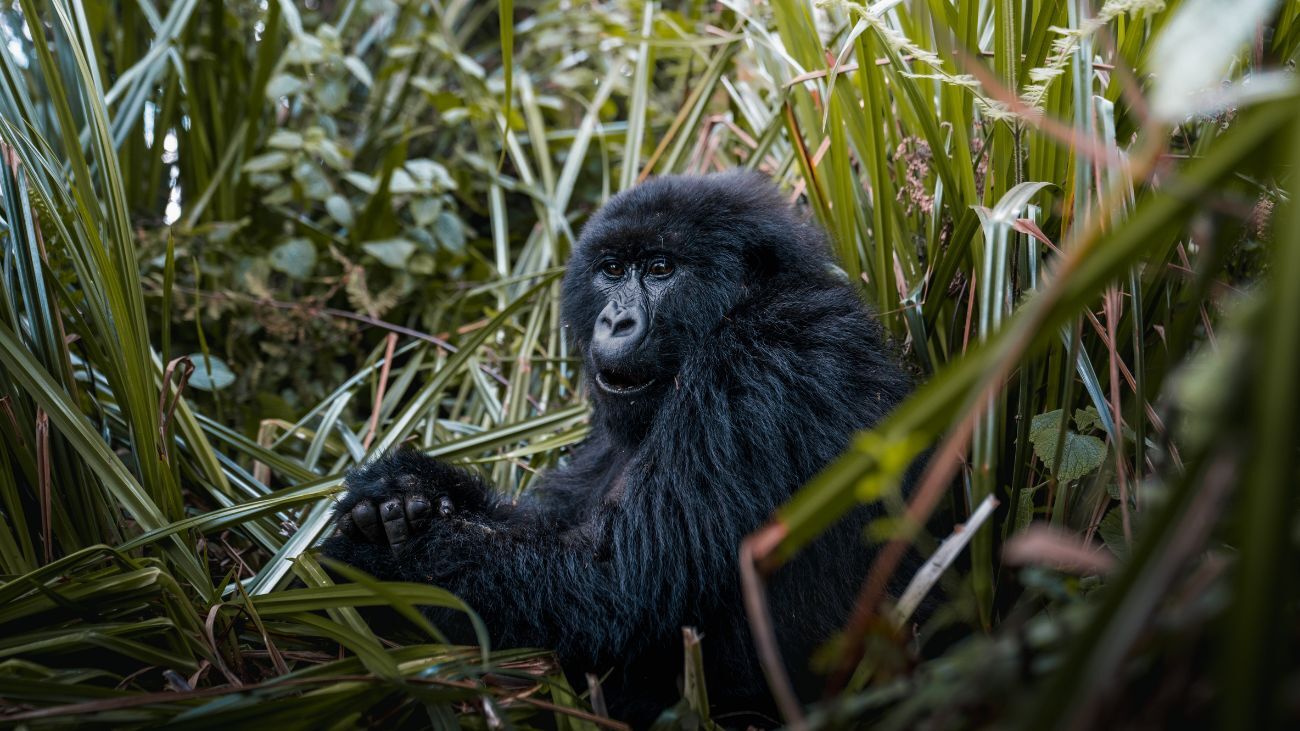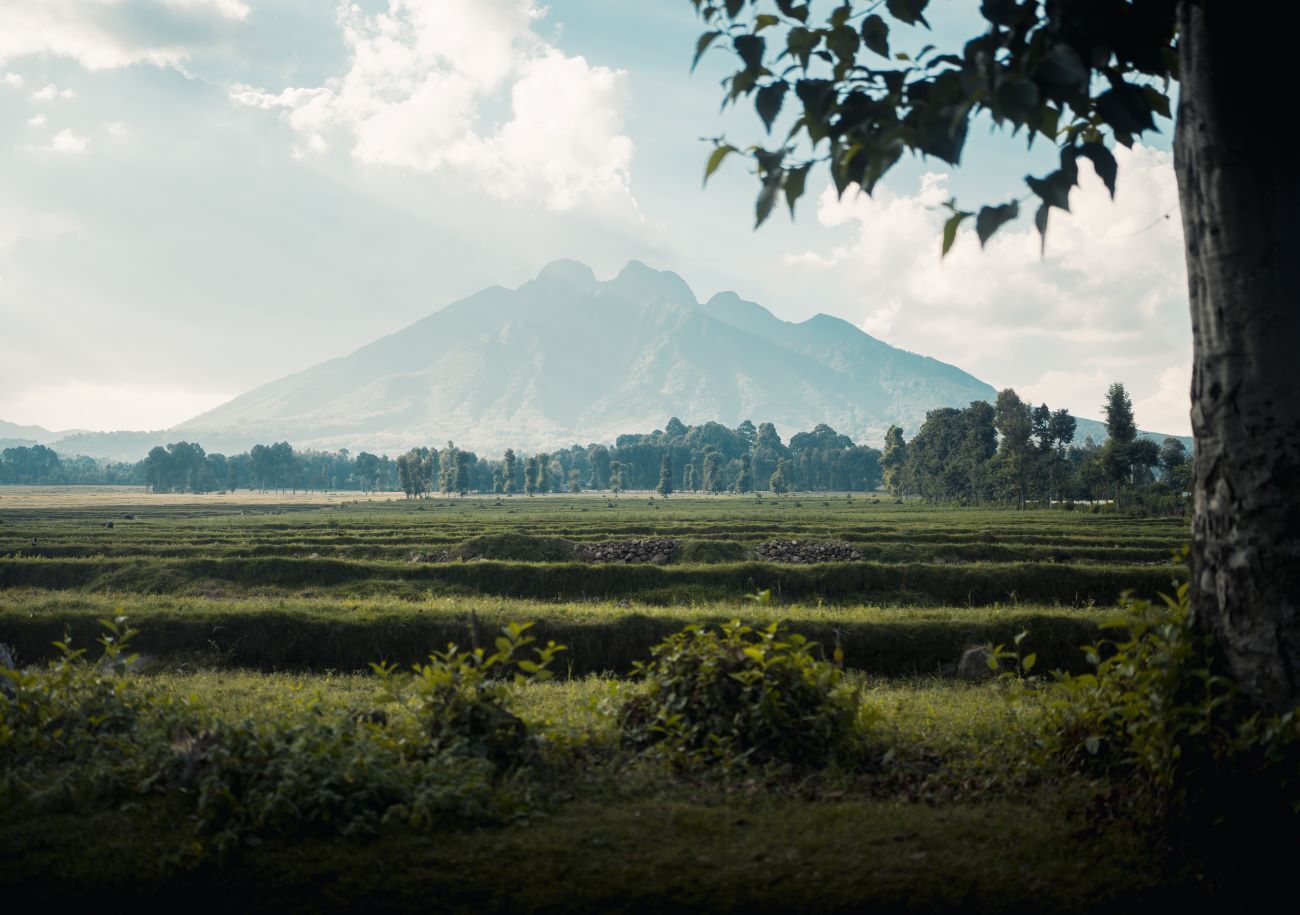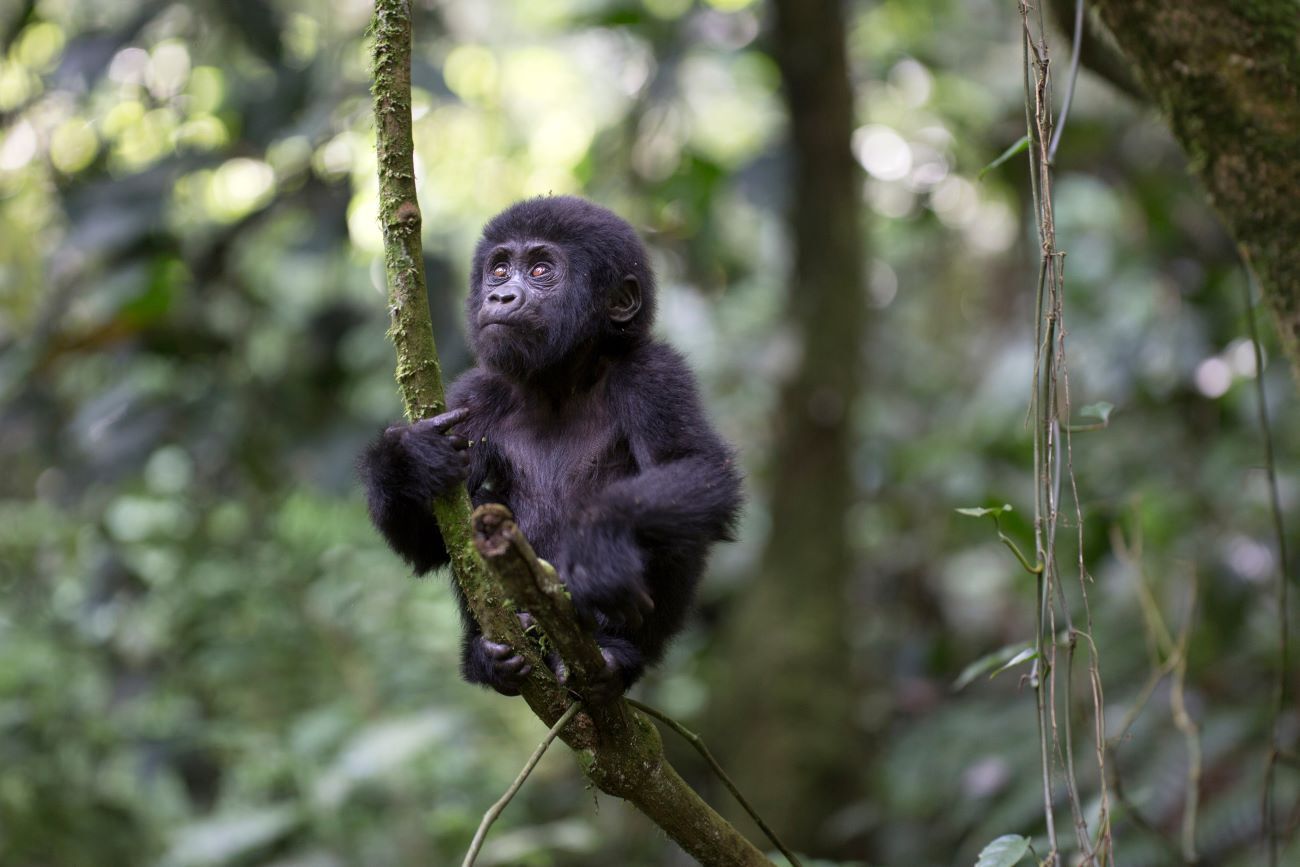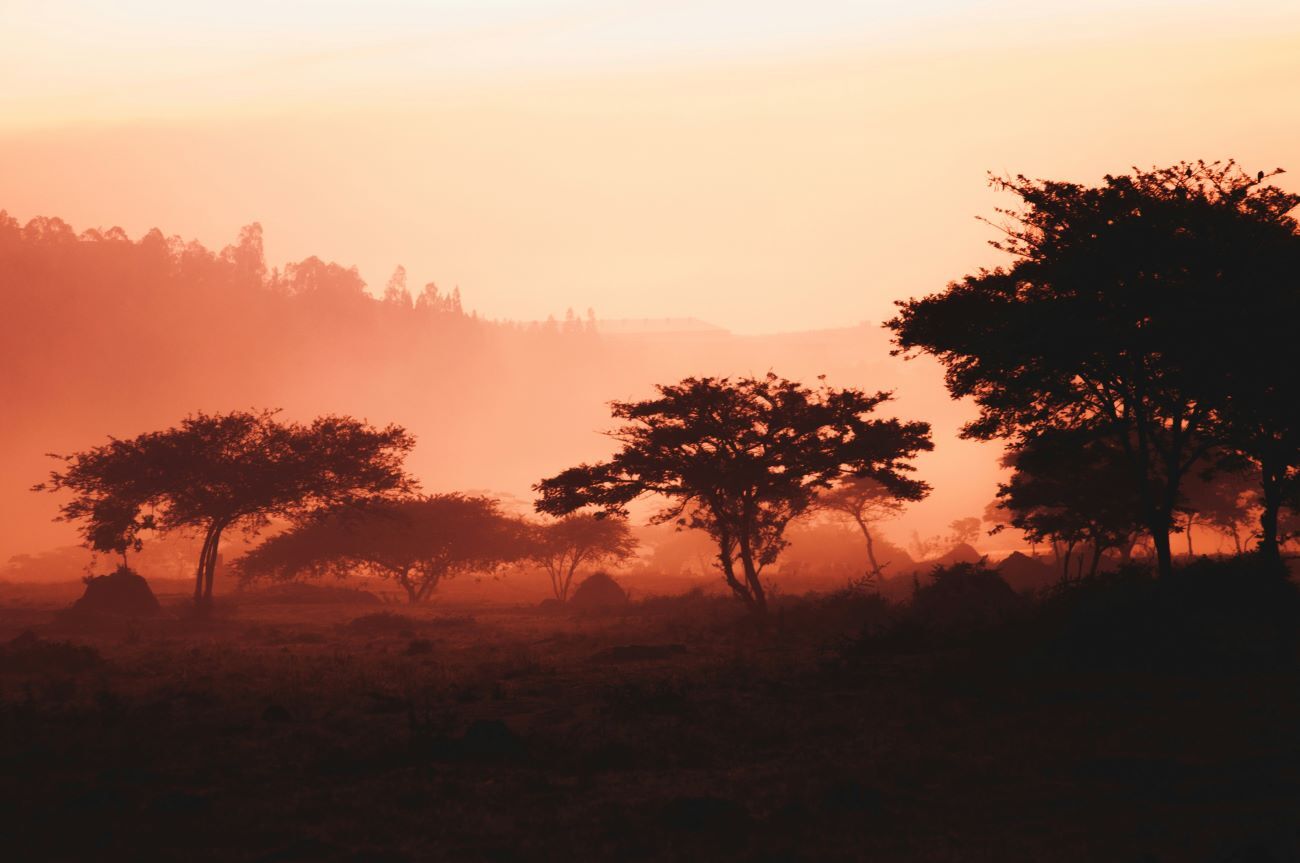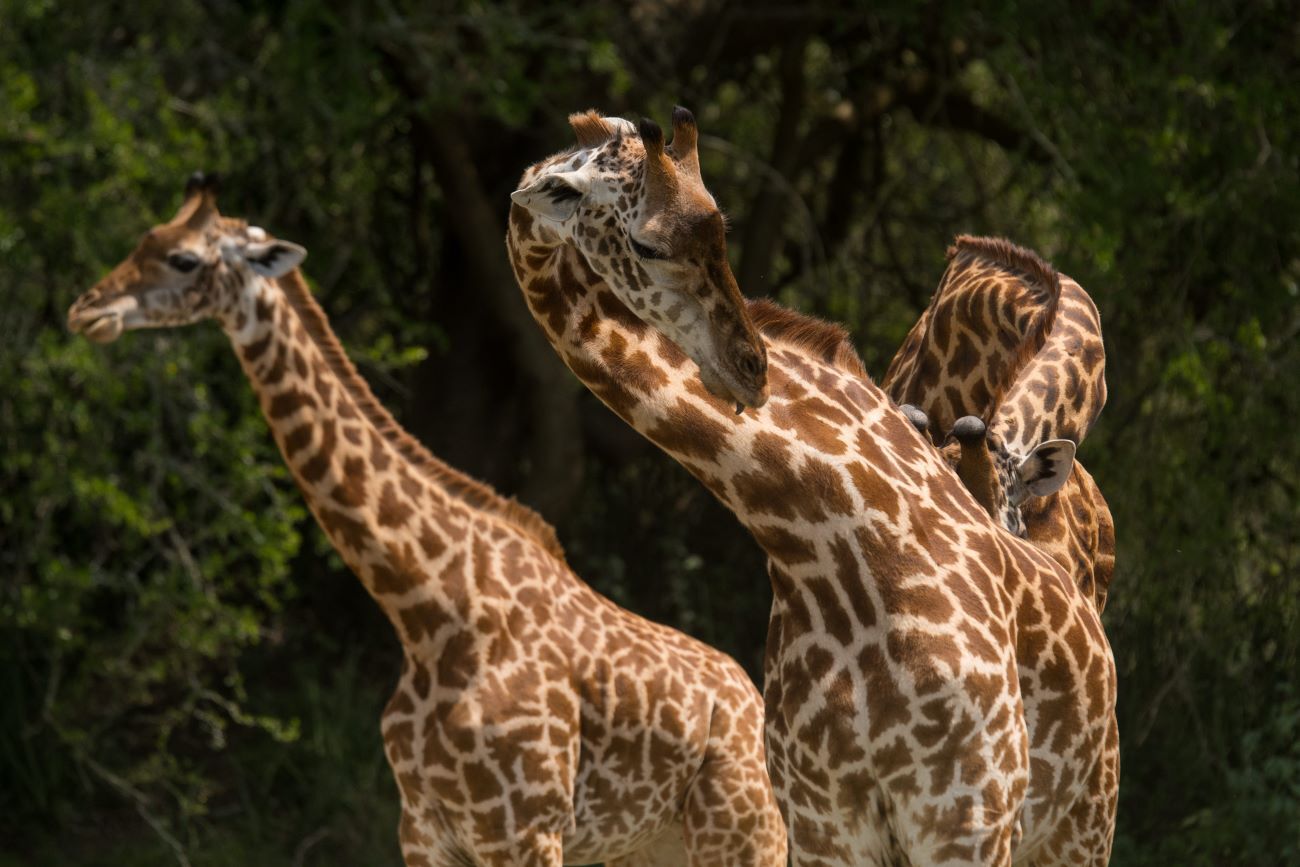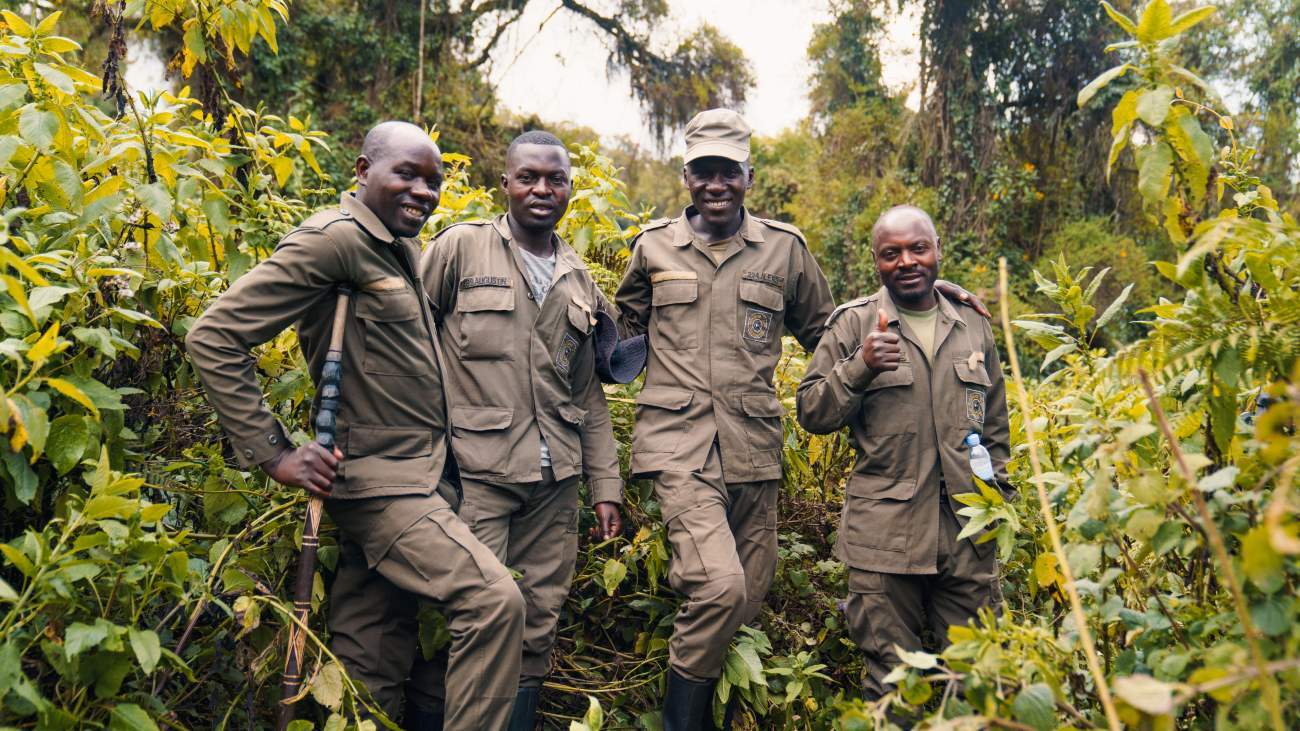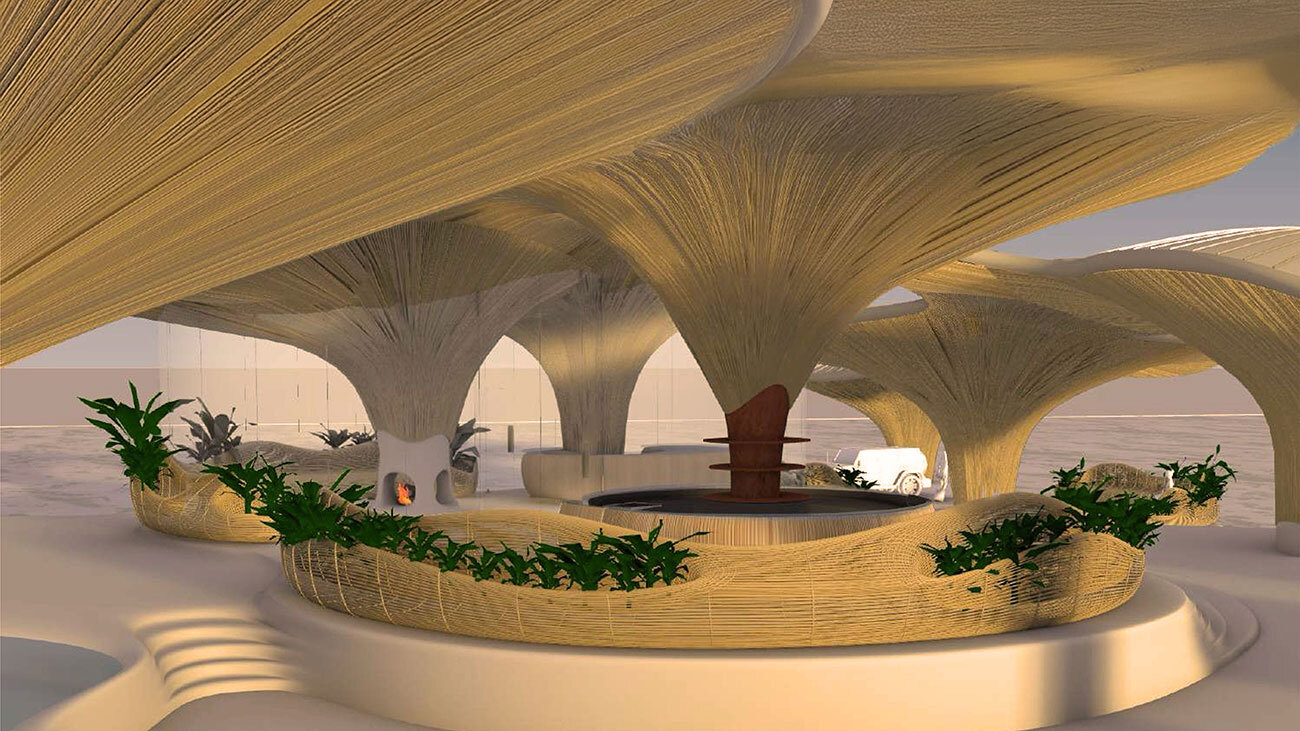Gorilla thriller: Getting up close and personal with Rwanda’s primates
Wildlife encounters and a moving history combine in the ‘land of a thousand hills’
Anticipation hangs in the air as we embark on the strenuous trek deeper into the mist-shrouded jungle of Rwanda’s Volcanoes National Park. With every step, the dense foliage grows thicker, engulfing us in its grasp. The only sounds I can hear are my boots crunching on the uneven trail and my increasingly laboured breaths while I focus intently on the tangle of vines and leaves that seem determined to trip me up. Each time we stop to rest, I breathe a sigh of relief, not only because I’m grateful for the break, but for the chance to look up and appreciate the beauty surrounding me. Thick, towering bamboo shoots entwine with lush vegetation, creating a swirling expanse of emerald and jade hues and, more importantly, a perfect feast for the animals that live here. After what feels like hours – but, in reality, is just over one – our guide brings us to a halt in a clearing. Here, expert trackers emerge from the trees to inform us that a family of mountain gorillas is nearby.
Gorilla thriller
Not many people can say they’ve been within mere metres of a mountain gorilla, one of the most endangered species in the world. Just over 1,000 of these majestic mammals remain in the wild, residing in Rwanda, Uganda and the Democratic Republic of Congo. While the phrase ‘once in a lifetime’ is well worn, trekking through the untamed forests of Volcanoes National Park and witnessing gorillas thrive in their natural habitat is entirely deserving of the epithet. The knowledge that a few decades ago these creatures were close to extinction – the total population was just 350 in the 1980s – makes the experience even more extraordinary. Before we head towards the lower slopes of Mount Karisimbi, home to the Susa family of gorillas, our guide reiterates the instructions to ensure our visit is as unobtrusive as possible and we each practise the guttural noise that signals to the gorillas that we are friend, not foe. As we set off, I cling to our tracker Matias with a mix of excitement and trepidation at being in such unfamiliar territory.
Epic encounter
It’s not long before we spot the unmistakable sleek black coats of two gorillas up ahead, stark against the abundant lush greenery of bamboo shoots and ferns. We approach the pair – who we learn are mischievous twins Byishimo and Impano – with cautious steps as they grapple playfully with one another. Suddenly, Matias signals for me to halt, his eyes flicking over my shoulder. I slowly turn around as a colossal silverback strides out on all fours less than a metre away from me. My heart races as Matias tugs me along to a safer distance, all the while keeping my eyes fixed on the steady yet powerful movements of the family patriarch. My fear is short-lived as he settles down to snack on a bamboo shoot, only sparing me a thoughtful gaze. In fact, each of the 14 gorillas we encounter – another silverback, several sub-adult males and a mother with her four-month-old baby – seem unperturbed by our presence.
These are indeed nature’s gentle giants. For an hour – the allotted time for each group to spend with the gorillas – we watch as they munch on greenery, stretch out for a snooze and climb the trees, mesmerised by these creatures that share 98% of our DNA. Visitor numbers to the park are carefully managed, with 112 permits available per day for groups of up to eight people to visit one of the 14 families that live here. Revenue not only ensures the continued protection of the gorillas, but provides employment and is channelled towards local communities. With the gorilla groups scattered across the 62-square-mile park, treks to reach them vary widely in difficulty, from a swift 30-minute hike to a demanding four-hour slog. As we wave goodbye to our distant kin and descend the mountain – a much more manageable journey – the silence among the group tells me everyone feels just as overcome with awe as I do.
Resilient nation
Rwanda’s beauty belies its strikingly recent history of adversity. Though many scars remain from the 1994 genocide, which claimed around one million lives and devastated countless more, the country has since undergone an incredible transformation. Few Rwandans were untouched by the horrors, so a visit to the Kigali Genocide Memorial is an important stop for travellers. Recommend clients start their trip by spending a couple of nights in the capital to visit the site. It is harrowing but also incredibly grounding, instilling an understanding for the resilience of this remarkable country and its people.
Tourism has played a pivotal role in Rwanda’s recovery. Investment in the sector has spurred the development of an increasing number of high-end hotels, lodges and restaurants, making an enticing selling point for luxury travellers. However, it’s the government’s commitment to sustainability that truly amplifies Rwanda’s appeal. A significant share of tourism revenue is reinvested into community projects, biodiversity conservation and protecting the incredible wildlife across the nation’s four national parks. With the country enjoying an increasing amount of attention, it seems to be paying off. In 2023, Rwanda welcomed 1.4 million tourists – nearly three times the 521,000 who visited in 2021 – marking an impressive bounce-back from the pandemic, when visitor numbers plunged by 70%. By 2028, Rwanda hopes to attract 2.2 million tourists. To support this growth, this year RwandAir introduced daily direct flights from Heathrow to Kigali – a clear reflection of the rising demand from the UK market.
Wider wonders
While the mountain gorillas are undoubtedly Rwanda’s most famous inhabitants, the country has plenty more to offer if you’re looking to convince your clients to extend their stay. Following our jungle trek, we head across the country to discover a very different terrain. Akagera National Park, which sprawls for miles up Rwanda’s eastern border, is a tapestry of open grassland and golden savannah plains fringed by rolling hills. The landscape and its flora and fauna were badly affected in the aftermath of the genocide. Half of the land was reallocated for returning refugees, while poachers depleted the wildlife, wiping out local populations of black rhinos and lions. Thanks to dedicated rewilding and conservation efforts, they have since returned, along with the rest of the big five, plus impalas, giraffes and zebras.
There are now some 12,000 animals across the park. During our short stay, we’re lucky enough to catch a glimpse of some of the wildlife that roams here: a lone elephant blocking the track as it wrestles with a branch from a tree; an enormous lion hidden in the undergrowth while it feasts on its lunch; and a herd of giraffes meandering across our path, including an infant that already towers over our 4x4 vehicle. We also embark on a boat safari across Lake Ihema, where we see hippos popping up to inspect the incoming trespassers, while herds of buffalo congregate to drink from the water’s edge and countless species of birds soar overhead. It’s incredible to see these wildlife populations thriving despite the challenges of the past, and to know that tourism is making a positive difference – not just here, but across Rwanda. While travellers will likely be drawn to the destination to add a tick on their bucket-lists, they will leave having been profoundly impacted by the unwavering resilience of its people, breathtaking natural beauty and captivating creatures – and knowing their visit has been equally as meaningful.
Hotel lowdown
Virunga Lodge: Incredible views of the Virunga Mountains and Lake Bulera, paired with impeccable service, make this property a knock[1]out. Featuring just 10 bandas (the traditional house of central Africa), guests are attentively cared for, and returning from a day of gorilla trekking feels like coming home. Rates start from £845 per person per night on an all-inclusive basis.
volcanoessafaris.com
The Retreat by Heaven: In the heart of Kigali, this eco-resort houses 20 rooms across three categories: Deluxe King Rooms, Superior King Suites and Luxury Pool Villas. Guests can immerse themselves in Rwandan culture by sampling local flavours at the Fusion restaurant, trying their hand at crafts such as banana-beer making, or exploring the capital during a private tour. Rates start from $500 per night based on two people sharing a Deluxe King Room in low season.
theretreatrwanda.com
Mantis Akagera Game Lodge: Set at the southern tip of Akagera National Park, this mid-range property boasts 60 comfortable rooms, the most spacious of which are the Presidential Suite and Family Suites. It’s ideally located for game drives or exploring Lake Ihema. Prices lead in at £180 per room per night, including breakfast, based on two people sharing a Standard Room.
mantiscollection.com
Book it: African Pride offers a five-night trip to Rwanda from £7,959 per person sharing, departing May 1, 2025. Price includes return flights, three nights full-board at Virunga Lodge, one gorilla trekking and golden monkey permit per person, a Kigali city tour and private transfers.
african-pride.co.uk
